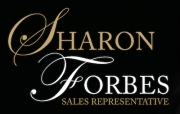- Home
- Our Office
- Contact Me
- Search Area Properties
- Resource Center
- resource CENTER
- Do You Want To Be A Landlord?
- Enviromental Issues
- WoodBurning Appliance Information
- Fire Retrofit, In Law Suites & Multi-Unit Housing
- Grow Houses
- Home Insurance
- Mortgage Fraud
- Ontario Fire Code
- Pest Control
- Power of Attorney
- Small Claims Court
- Smoke Detectors & CO2 Alarms -it's now the law
- Wells
- About Team Realty
- Agency Relationship
- Buyer Information
- buyer INFORMATION
- Are you a Client or a Customer
- Buying a Home - Additional Costs to Consider
- Home Inspections -A MUST!
- Home Owners Insurance
- Housing Options for Retirees
- How to Make an Offer
- The Major Elements of an Offer
- Market Conditions Will Affect What You Pay For Your Home
- Mortgage Information
- Preparing for Your Move
- Rental Units May Ease Financial Burden for Purchasers
- Structural &Environmental Cautions
- Tips For Buying New Home Construction
- Tips For Objective Home Viewing
- Title Insurance - A MUST!
- Why Good Credit Is Essential
- Why Hire A Lawyer?
- Useful Links For Buyers
- Buy First then Sell or Vice Versa
- Choosing the Right AGENT
- Additional Costs to Consider
- Closing Costs
- Closing Day
- Features I Would Like to Consider In My New Home - A Handy Checklist
- Real Estate Glossary of Terms
- Seller Information
- seller INFORMATION
- Why Use a real Estate Agent?
- Renovating for Resale
- Glossary of Terms
- Selling: Tips for Preparing the Exterior of your Home
- Selling: Preparing the Interior of your Home
- Helpful Tips for Selling your Home
- Helpful Tips for Selling your Home: Part 2
- Determining the Value of Your Home
- Agree on Marketing Plan
- Buy First then Sell or Vice Versa
- Pricing Your Property & Showability
- Preparing to Show Your Home
- The Major Elements of an Offer
- Preparing for the House Inspection
- Preparing for Your Move
- Ontario Property Tax Assessment Changes
- Home Owner Information
- Creating Space Without Adding On
- Creating a Safe Home for Your Children
- Designing for Life: Feng Shui
- The Home Office: Pros & Cons
- Home Efficiency Tips
- Household Safety Tips
- Interior Painting Tips for the Do-It-Yourselfer
- Invisible Threats in the Home
- Energy savings at Home
- Medicine Cabinet Dos & Dont's
- Outsourcing: Not Just for Businesses Anymore
- Planning a Garage Sale
- Planning Your landscape
- Save Money While saving the Planet
- Securing Your Home
- Solutions to the Common Cleaning Problems
- Welcoming that Bundle of Joy
- Moving
- Structure & Environment
- Structural & Environmental Cautions
- Pyrite or Sulphite Soil Can Affect Your Foundation
- Pyrite And Your House
- Stone Foundations
- Stone foundations - cause for concern?
- Concrete Foundations
- Wood Framing
- Dry Rot
- Termites and Other Insect Infestation
- Oil Heating
- Gas Heating
- Asbestos / Vermiculite
- Mold
- Buried Oil Tanks
- Outside Oil Tanks
- Lead Supply Distribution Piping & Galvanized Distribution Piping
- Knob and Tube Wiring
- Aluminum Wiring
- Septic Systems
- Buying Rural Real Estate Inspecting and Testing the Septic & Well - A MUST!
- Fireplaces, Wood Stoves, Forced Air Wood Furnace
- Mortgage Tools
- Schools, Parks and Community Service
- Expert Q & A
- Testimonials
Closing Costs
Costs Related to the Real Estate Transaction
The conveyance of real property results in the payment of certain expenses by the parties
involved. Set forth below is brief summary of theses expenses, that are incurred when
transactions are handled properly and professionally, viewed both from the position of
the Buyer and from the position of the Seller. Buyers should budget approximately 2-3%
of the purchase price for closing costs.
Land Transfer Tax
This is paid by the Buyer at the date of the final closing to the Treasurer of Ontario
pursuant to the Land Transfer Tax Act. The tax is based on the purchase price and the
current rates became effective on June 1st,1989.
The rates are as follows for a single family residence:
$0‐$55,000 0.5%
$55,001‐$250,000 1% less $275.00
$250,001‐$400,000 1.5% less $1525.00
$400,001– and up 2.0% less $3525.00
Example: To calculate the land transfer tax on a purchase price of $275,000, multiply the
purchase price by 1.5% and deduct $1,525 ($4,125 - $1,525 = $2,600)
Disbursements – Purchase
In addition to the payment of Land Transfer Tax, Buyers are responsible to pay for
certain disbursements incurred by their lawyer in respect of various certificates, searches
and registrations. Examples of such approximate disbursements are as follows:
i) Registration of Deed $70.70
ii) Registration of Mortgage $70.70
iii) Municipal and utility searches OR title insurance $270.00
iv) Abstract of Title & Execution Certificate $150.00
v) Transaction Levy $50.00
vi) Couriers, photocopies, postage, closing agent $75.00
For a typical purchase (including one mortgage), a Buyer should budget about $650.00
for disbursements. There will also be further costs for adjustments, land transfer tax and
legal fees.
Costs Related to a Real Estate Transaction
Note Costs May Vary in Different Trading Areas
Title Insurance
Title insurance insures against past problems that could affect your ownership in the
future. A low, one-time premium covers you for loss or damage up to the policy amount
and all legal costs you would have to pay to defend your title. Once the policy is issued,
a covered title problem is not your concern. It’s ours. First Canadian Title will assume
the risk. No survey is required by your lending institution if you have title insurance.
Note: The cost of title insurance is not having to pay the majority of the above noted
disbursements. It is highly recommended that all purchasers obtain title insurance!
Disbursements – Sale
The Seller in a real estate transaction is not required to pay any Land Transfer Tax.
However, the Seller’s responsible to pay for certain disbursements incurred by their
lawyer such as:
Registration of a Discharge of Mortgage $50.00
Transaction Levy $50.00
Couriers, photocopies, postage, closing agent $75.00
For a typical sale (one mortgage to discharge), a Seller should budget about $175.00 for
disbursements. There will also be further costs for adjustments and legal fees.
Adjustments on Closing Between Seller and Buyer
On closing there will be adjustments to the sale price between the Seller and the Buyer
which will appear on a Statement of Adjustments as credits in favor of the Seller or the
Buyer. If the Seller is relying on receiving or if the Buyer is relying on paying a fixed
amount on closing, it is unpleasant if these adjustments come as a total surprise to your
client.
For example, if taxes for the calendar year are $1,200.00, the deal closes June 30th and
the Seller has paid the taxes for the entire calendar year, there will a credit on closing to
the Seller of $600.00. In other words, the Seller receives $600.00 more and the Buyer
pays $600.00 more.
Also, if there is a fuel tank at the property, the Seller usually fills the tank on closing and
sells a full tank to the Buyer. If the adjustment were approximately 31 cents per litre for
909 litres. The Seller would receive $281.79 more and the Buyer pays $281.79 more on
closing.
Survey
Most financial mortgage institutions now require a Buyer to produce a recent survey for
the real property being purchased showing the boundaries of the lands and the location of
the dwelling thereon. The term “recent” varies from lending institution to lending
institution but as a loose rule a survey 10-15 years old will probably still be acceptable to
a lender if accompanied by a Declaration of the Seller saying it is still accurate. If the
Buyer requires a survey for the lender and the Seller does not have one, it is the
responsibility and the expense of the Buyer not the Seller to have a new one prepared by
an Ontario Land Surveyor.
Title insurance will take care of the problems incurred in the absence of a survey or an
up to date survey! It is highly recommended that title insurance be obtained in the
absence of a survey.
Mortgage Insurance
In the event that the amount of your first Mortgage on your purchase transaction exceeds
75% of the purchase price, it will be necessary for you to purchase, for the protection of
the Lender, mortgage loan insurance. This mortgage loan insurance premium that is paid
is to protect the lender in the event that the mortgage is not paid. This is not to be
confused with life, disability, or job loss insurance.
The mortgage insurance is normally purchased through CMHC (Canada Mortgage and
Housing Corporation) or GEMI (GE Capital Mortgage Insurance Canada.) The cost of
the insurance premium is paid by the Buyer. The amount of the mortgage insurance
premium is calculated using a loan/value ratio, and may be added to the mortgage
amount. The premiums are as follows:
a) 75% to 80% 1. %
b) 80% to 85% 1.75%
c) 85% to 90% 2.00%
d) 90% to 95% 3.25%
e) 95% to 100% 3.40%
Other high ratio financing costs include an application/appraisal of $165 and there is 8%
provincial sales tax on the mortgage insurance premium to be paid by the borrower as set
forth above. While the mortgage insurance premium can be added into the amount of the
Mortgage, the provincial sale tax on the premium is payable immediately at the time of
the advance of the mortgage funds.
Building Inspection Fees on House Inspection Fees
It is generally recommended that when purchasing a resale home or new construction that
a building inspection be carried out on the structure, either prior to making an offer on the
property or at the time you have entered into the Agreement of Purchase and Sale. The
fee for a normal building inspection on (can range from $250.00 to $500.00)
Legal Fees – Employee Transfer
It is the policy of most law firms to accept as reimbursement for their legal fees and
disbursements on a residential real estate transaction the normal guidelines of the
individual employer. Experience has shown that employers such as External Affairs, Bell
Canada, various relocation services etc. have a set schedule of fees and disbursements to
be allowed an employee who is being transferred. The client is not out of pocket any
funds by virtue of any additional charge from most law firms.
Legal Fees – Department of National Defence
The legal fees for some transactions are governed by tariffs established by government
agencies such as the Department of National Defence. Lawyers are prepared to be bound
by the tariffs established and to work with Royal LePage on any Canadian forces transfer.
Legal Fees – Normal
Approximation of average legal fees on a residential real estate transaction is as follows:
Purchase $650 to $750
Sale $550 to $650
NOTE: Royal LePage does not take any responsibility for the accuracy of the costs listed above. The costs are to give
you an idea of the approximate expense range. As a professional realtor, it is incumbent upon you to verify any costs
that you will be using in your representation to buyers and sellers so as not to misrepresent. Also use an approximate
range of value instead of one fixed amount. As mentioned previously, Buyers should budget 2-3% of the purchase
price for closing costs.
For more information, please contact a
Royal LePage TEAM REALTY Sales Representative.






